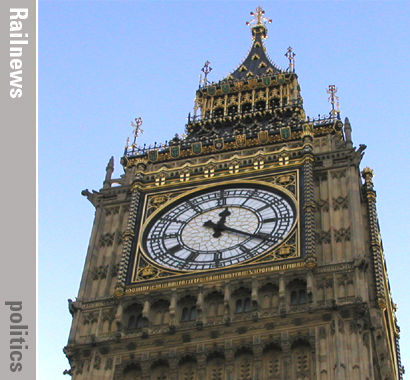THE project to build high speed lines linking London with the midlands and north of England needs a ‘major rethink’, according to the Economic Affairs Committee of the House of Lords.
The Committee has criticised HS2 on previous occasions, and its latest report casts new doubts on the scheme, which it says has ‘fundamental flaws’.
The report, ‘Rethinking High Speed 2’, maintains that the north of England should be the priority for investment, and that the costs of HS2 ‘appear to be out of control’.
The Committee also recommends that the maximum speed should be reduced on new high speed lines to cut costs, and that the line from Birmingham should terminate in west London rather than Euston.
The government said it ‘fundamentally disagrees’ with the report’s findings.
Committee’s chair Lord Forsyth of Drumlean said: ‘Commuter services in the north of England are badly overcrowded and reliant on ageing trains. Rail connections between northern cities are poor. As the Committee suggested in its 2015 report, rail infrastructure in the north should be the Government’s priority for investment, rather than improving north-south links which are already good. The north is being short-changed by the Government’s present plans, especially as construction on HS2 is starting in the south. Any overcrowding relief from HS2 will mainly benefit London commuters.
‘The plans for Northern Powerhouse Rail should be integrated with the plans for the northern section of HS2, and funding for the project ringfenced. This will allow rail investment in the north to be prioritised where it is most needed.
‘The costs of HS2 do not appear to be under control. It is surprising therefore that the Government has not carried out a proper assessment of proposals to reduce the cost of HS2—such as lowering the speed of the railway or terminating in west London rather than Euston—which the Committee recommended in 2015. A new appraisal of the project is required.
‘If costs overrun on the first phase of the project, there could be insufficient funding for the rest of the new railway. The northern sections of High Speed 2 must not be sacrificed to make up for overspending on the railway’s southern sections.’
The report is also critical of the Department for Transport, saying that its ‘method of appraisal for large infrastructure projects is not fit for purpose. Despite the main justification of HS2 being to increase capacity on the rail network, DfT’s assessment of benefits places too much emphasis on time savings for travellers, and too little emphasis on the transformative effect railways can have on local economies. This appraisal method has distorted decision-making …’
The DfT said: ‘By 2020, the government will have invested a record £13 billion in transport across the North, and we have a clear plan for linking the Midlands and the North through HS2 and Northern Powerhouse Rail - the full benefits of which can only be delivered on the back of HS2. This is not either/or, we are clear we want both.
‘HS2 will deliver additional rail capacity, significantly improve connections and provide opportunities for economic growth – with around £92 billion in benefits – for people and businesses across the North.’


